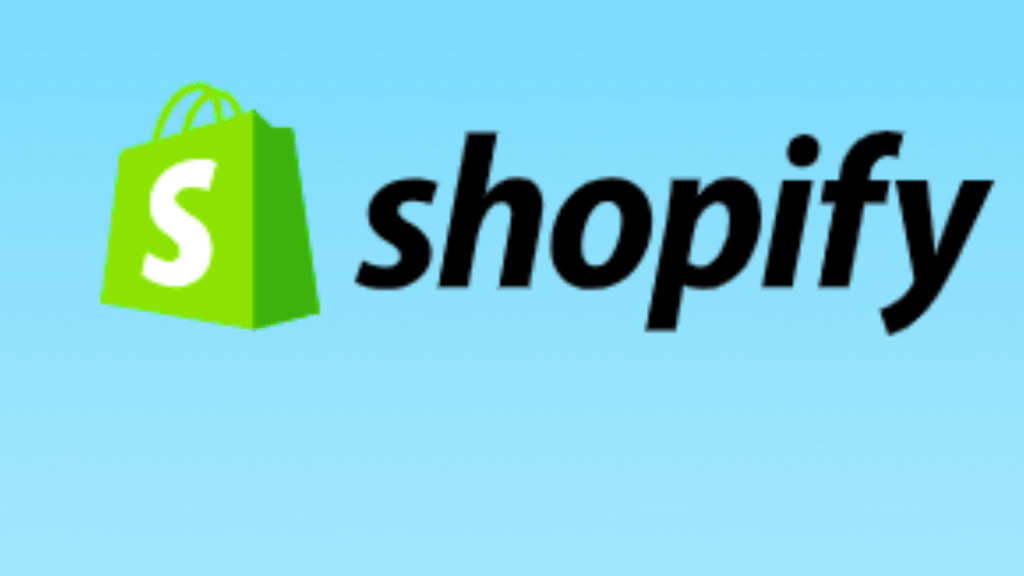What Is Shopify? A Complete Guide for Beginners and Businesses

If you’ve ever wondered “What is Shopify?”, you’re not alone. Whether you’re an aspiring entrepreneur, a small business owner, or an established brand, Shopify has become one of the go-to platforms for building and managing online stores. In this in-depth guide, we’ll explore everything you need to know about Shopify, how it works, its features, pricing, pros and cons, and whether it’s the right choice for your business.
Introduction to Shopify
Shopify is an all-in-one e-commerce platform that allows anyone to create an online store, manage products, accept payments, and fulfill orders — all without needing advanced technical skills. Launched in 2006, Shopify has grown to power millions of online stores in over 175 countries. From small boutiques to multinational corporations, businesses of all sizes use Shopify to reach global customers.
How Does Shopify Work?
At its core, Shopify simplifies the process of selling online. Instead of hiring a developer to build a store from scratch, Shopify provides a hosted solution — meaning it takes care of hosting, security, and updates automatically. You only need to sign up, pick a template, add products, and launch.
Key steps in how Shopify works:
- Sign Up: Create an account on Shopify’s website.
- Choose a Plan: Select a pricing plan based on your business size.
- Design Your Store: Use pre-made themes or customize your own.
- Add Products: Upload images, set prices, and write descriptions.
- Set Up Payments: Accept credit cards, PayPal, or other payment gateways.
- Launch and Market: Open your store and start driving traffic.
Key Features of Shopify
Understanding what Shopify offers is essential for answering the bigger question: What is Shopify used for? Below are its most powerful and widely appreciated features:
1. User-Friendly Store Builder
Shopify’s intuitive drag-and-drop builder makes website creation quick and hassle-free. You don’t need to know any coding though advanced users can still edit HTML and CSS for full customization.
2. Professional Themes
Choose from a wide range of free and premium themes that are mobile-responsive, ensuring your store looks polished and performs well on all devices.
3. Built-In Payment Processing
With Shopify Payments, you can accept credit cards seamlessly, while also integrating PayPal, Apple Pay, and over 100 other global payment gateways.
4. Extensive App Store
Shopify’s App Store offers more than 8,000 apps to extend your store’s capabilities from email marketing and SEO optimization to live chat, inventory management, and accounting tools.
5. Multi-Channel Selling
Expand your reach by selling directly on Facebook, Instagram, TikTok, Amazon, and eBay all managed within your Shopify dashboard.
6. SEO and Marketing Tools
Built-in SEO features such as customizable titles, meta descriptions, and automatically generated sitemaps make it easier to rank on Google. Shopify also integrates seamlessly with Google Analytics and marketing automation platforms.
7. Secure and Reliable Hosting
All Shopify stores include SSL certificates and PCI compliance for safe transactions and robust, high-speed hosting that doesn’t require any manual setup.
What Can You Sell on Shopify?

The beauty of Shopify is its flexibility. You can sell:
- Physical Products: Clothing, electronics, jewelry, home goods.
- Digital Products: eBooks, courses, music, photography.
- Services: Consulting, event planning, rentals.
- Subscriptions: Memberships, subscription boxes, recurring services.
- Dropshipping Products: Sell without holding inventory using apps like Oberlo or DSers.
Shopify Pricing Plans
When exploring what Shopify is, cost is often a major question. Shopify offers several pricing tiers:
- Shopify Starter ($5/month): Sell through social media or existing websites.
- Basic Shopify ($39/month): Ideal for small businesses with a few products.
- Shopify Plan ($105/month): Suitable for growing businesses needing more features.
- Advanced Shopify ($399/month): Designed for high-volume merchants requiring advanced reporting.
- Shopify Plus (Custom Pricing): Enterprise solution for large brands.
Each plan includes hosting, SSL certificates, and access to basic Shopify features, though transaction fees vary if you don’t use Shopify Payments.
Advantages of Using Shopify
Understanding the advantages of Shopify will help clarify what Shopify is and why it’s one of the most popular e-commerce platforms today.
1. Easy to Use
Shopify is designed for beginners and non-technical users. Its intuitive interface lets most store owners build and launch a store in just a few hours — without hiring a web developer.
2. Scalable for Any Business Size
Whether you’re selling just a handful of products or processing thousands of orders each day, Shopify can handle your growth seamlessly. Its plans and features are designed to expand alongside your business.
3. Wide Integration Options
Shopify connects with a vast range of apps, marketing platforms, shipping services, and social media channels, helping you streamline operations and increase sales opportunities.
4. Reliable 24/7 Support
Need help at 2 a.m.? Shopify’s round-the-clock customer service — via chat, email, and phone — ensures you’re never left without assistance.
5. Global Selling Capabilities
With built-in multi-currency and multi-language options, Shopify makes it easy to reach international markets and grow your customer base worldwide.
Disadvantages of Using Shopify
While Shopify is excellent for most users, it’s not perfect:
- Monthly Fees: Costs can add up, especially with paid apps and themes.
- Transaction Fees: If you don’t use Shopify Payments, extra fees apply.
- Limited Customization: Although themes are flexible, full control often requires coding.
- App Dependence: Some key features require third-party apps, increasing costs.
Shopify vs. Other Platforms
When exploring what Shopify is, it helps to compare it with other popular e-commerce solutions. Each platform has its strengths and weaknesses, but Shopify stands out for its balance of usability, scalability, and integrations.
Shopify vs. WooCommerce

- WooCommerce is a free WordPress plugin that transforms a WordPress website into an online store. While cost-effective upfront, it requires manual hosting, security, and updates — meaning you’re responsible for setup and ongoing maintenance.
- Shopify, on the other hand, is a fully hosted platform. This means it handles hosting, security, and performance automatically, making it a better choice for beginners or business owners who want to avoid technical work.
- Best for: WooCommerce suits users already familiar with WordPress, while Shopify is ideal for anyone who wants a turnkey e-commerce solution.
Shopify vs. Wix
- Wix is a popular drag-and-drop website builder, great for small websites or portfolio pages. However, its e-commerce tools are less advanced compared to Shopify.
- Shopify provides robust inventory management, multi-channel selling, and better scalability for businesses expecting rapid growth.
- Best for: Wix is perfect for small stores or personal projects, while Shopify is built for serious e-commerce ventures.
Shopify vs. BigCommerce
Best for: BigCommerce works well for larger, tech-savvy teams, while Shopify is preferred by businesses seeking simplicity and flexibility.minate the e-commerce landscape.
BigCommerce offers powerful built-in features and is often praised for eliminating the need for third-party apps. However, its interface can be more complex for beginners.
Shopify provides a massive app ecosystem and an easier learning curve, allowing users to customize features without being overwhelmed.
How to Get Started with Shopify
- Start a Free Trial: Shopify offers a 3-day free trial so you can explore features.
- Pick a Theme: Select a free theme to start; upgrade later if needed.
- Add Your Products: Use clear product photos, detailed descriptions, and accurate pricing.
- Set Up Shipping and Payments: Ensure customers have multiple payment and delivery options.
- Test Your Store: Make test orders to ensure everything runs smoothly.
- Launch and Market: Use social media, email campaigns, and SEO to attract customers.
Who Uses Shopify?
Shopify’s versatility makes it a great fit for a wide range of users — from individuals just starting out to massive enterprise brands.
- Small Business Owners: Local boutiques, handmade craft shops, and niche product sellers use Shopify to launch quickly without needing coding skills.
- Entrepreneurs: Dropshippers and digital product creators take advantage of Shopify’s apps and integrations to automate fulfillment and sell globally.
- Enterprise Brands: Major companies like Gymshark, Allbirds, Heinz, and Kylie Cosmetics rely on Shopify Plus for scalability, advanced analytics, and global reach.
This broad adoption demonstrates why Shopify continues to dominate the e-commerce space — it’s simple enough for beginners but powerful enough for the world’s biggest brands.
SEO Benefits of Shopify
Because this article is written to answer What Is Shopify for SEO purposes, it’s worth noting Shopify’s SEO strengths:
- Automatically generates sitemaps and robots.txt files.
- Clean URLs and customizable meta tags.
- Mobile-responsive themes (critical for ranking).
- Easy integration with Google Search Console and Google Analytics.
These features help Shopify stores rank well on Google, provided you use good keyword targeting, high-quality content, and optimized product descriptions.
Is Shopify Right for You?
To determine if Shopify is the right choice, ask yourself:
- Do you need to launch quickly without technical hurdles?
- Are you willing to pay monthly fees for convenience?
- Do you plan to scale your business over time?
- Do you value strong support and integrations?
If you answered “yes” to most of these, Shopify is an excellent solution.
Conclusion:
So, what is Shopify? It’s more than just an online store builder it’s a powerful, all-in-one e-commerce platform designed to help businesses of all sizes sell products, manage operations, and scale globally with ease. From its user-friendly interface and professional themes to its secure hosting, built-in payment processing, and multi-channel selling options, Shopify provides everything you need to run a successful online business.
Whether you’re launching your very first store or upgrading an existing operation, Shopify offers the flexibility, integrations, and support to help you grow without technical headaches. If you value speed, reliability, and scalability, Shopify is one of the best solutions available to take your business online and keep it thriving. see it
